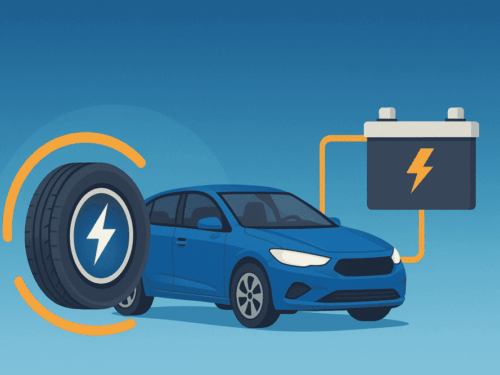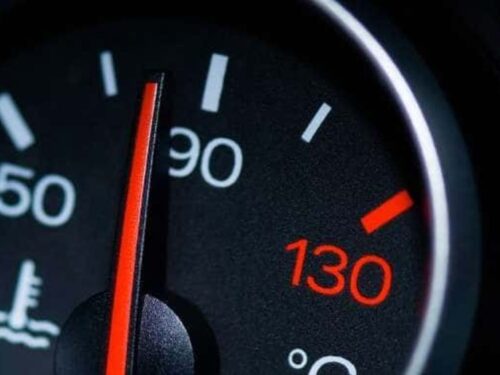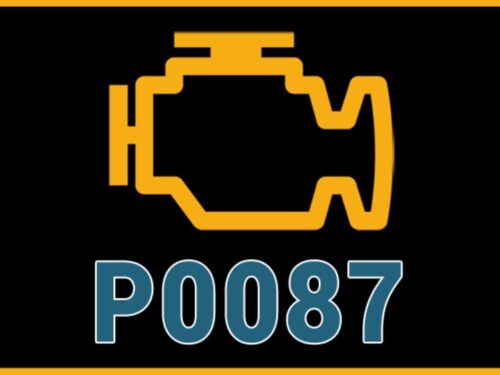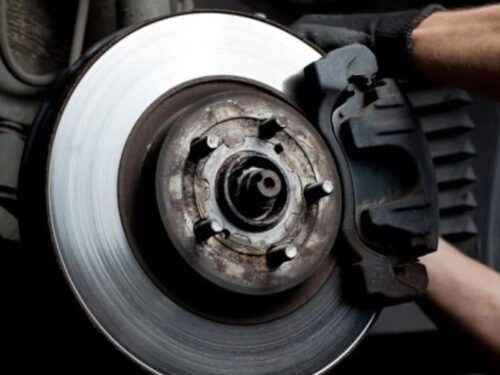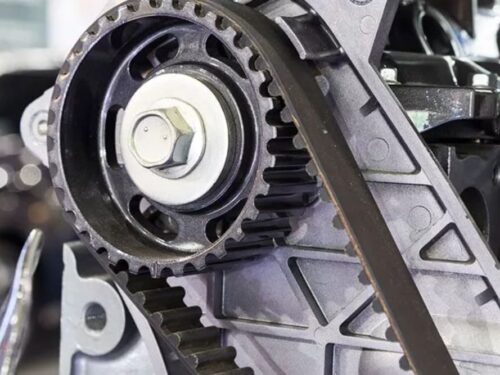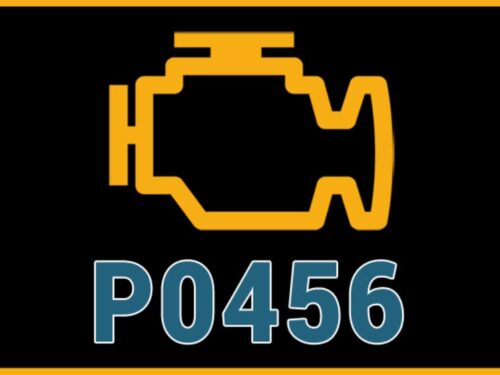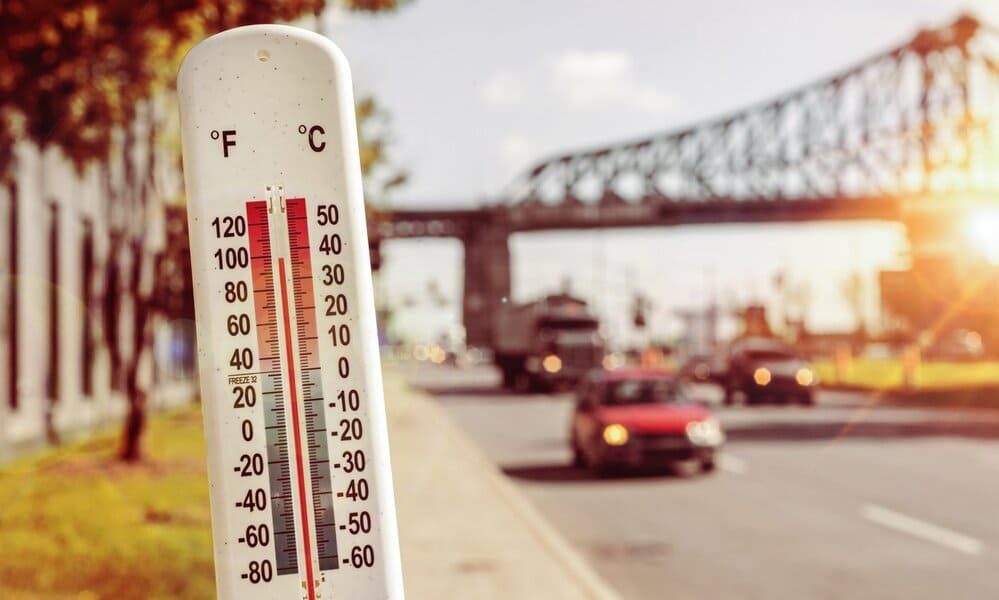
As the warmer-weather months approach, temperatures generally tend to climb. The same is true during the winter – whenever there’s a seasonal change, it’s important that your car is ready for it. Since most people keep their cars parked outside on the street or in garages that are also subject to climate conditions, heat will inevitably take its toll. Keeping in mind the parts of your vehicle that are most susceptible to hot weather and having it checked out by an auto repair expert can help save you money and prevent excessive wear and tear this summer.
TIRES
During the summer, it’s a good idea to have your tire pressure checked every time you visit the gas station. It might even be worth purchasing a tire pressure gauge so you can monitor it yourself, or taking it to the local auto repair shop. This is because tires expand when exposed to heat, and during the hotter months, the asphalt you drive on absorbs that heat. Tire pressure is affected by temperature. Make sure you’re keeping your pressure equal to the number inside your door jamb, which most vehicle manufacturers include. Otherwise, you’ll be putting excessive wear on them and will have to replace them sooner, and tire blowouts can be dangerous and costly.
Heat also tends to have a degrading effect on rubber. Tires are made from synthetic and natural rubber compounds that are full of oils that keep them flexible. As they age, heat and friction with the road can dry the oils out and cause the rubber to become brittle. If your tires are old, it’s probably a good idea to have an automotive service technician replace them ahead of a hot-weather season regardless.
BATTERY
Hot weather can shorten your battery’s life significantly because it accelerated corrosion. Having an auto mechanic clean the corrosive buildup around your battery’s terminals and tighten up your clamps to make sure the connection is solid. Additionally, higher-temperature weather can take a toll on your vehicle’s electrical system and cause your battery fluid to evaporate faster. If your battery is old or you haven’t replaced it in a while, it’ll ultimately be less expensive to get a car battery replacement than having a dead battery serviced after a breakdown.
The strain on a vehicle’s battery is increased during the summer due to the increased load from the fans and air conditioning system. They often struggle to produce power in the heat, so it’s probably a good idea to have jumper cables on hand, especially if you’re taking a longer trip.
OIL & FLUIDS
Monitoring your car’s fluids is always important, but it’s especially crucial during the summer. The same way people need to stay extra hydrated in the heat, cars do too! Coolant is especially important. Low levels of coolant can kill your engine. Like you keep yourself cool in the summer, you need to keep your engine cool in order for it to be able to function at its best. Your engine is working extra hard in the summer. It’s the cooling system’s job to protect the engine from overheating. Engine coolant becomes depleted over time and its protective additives are depleted. The system should be flushed and coolant should be replaced periodically, especially during the hotter months. Between flushes, make sure the coolant is filled to proper levels by monitoring the overflow reservoir. Top off the reservoir with a 50/50 mix of water and the coolant type recommended by the manufacture if necessary. Worn hoses or damaged radiators can allow coolant to leak and your engine’s temperature to rise. Make sure to have the following additional fluids checked regularly by an auto repair specialist:
- Motor oil
- Transmission fluid
- Brake fluid
- Power-steering fluid
- Windshield wiper fluid
Since natural evaporation of these fluids is common when it’s hot, you can do things like parking in a cool, shady spot to prevent it.
AIR CONDITIONING
Vehicles tend to operate better when cold air is present because cold air is more dense, which allows the car to take in more oxygen and maintain horsepower at a higher level. Most people use the air conditioner in their car every day during the summer, which can take a toll on its performance since it uses power from the engine to keep the cabin cool. A good way to keep your air flow clean and clear is by replacing your cabin air filter. If you’ve noticed the air quality doesn’t seem to be as good as it could be, having a mechanic take a look can easily fix the problem.
BELTS & HOSES
You’ll definitely want to consult an auto repair technician regarding the health of your car belts and hoses. These important pieces need to be in good shape in order to maintain the safe, healthy functioning of your car. A busted or leaking belt or hose can lead to loss of steering control, an overheated radiator, or engine failure that can result in a breakdown. In fact, research has shown that nearly 20% of vehicles on the road have worn belts that need replacing, and nearly 15% have a hose that needs updating. If your car has over 85,000 miles on it, the probability of belt wear is even higher. Intense heat can cause cracking and blistering in belts and hoses. During the summer, have an auto repair expert check for the following:
- Cracking and wear in all belts
- Belt tensioner functionality
- Idler pulley functionality
- Soft spots in hoses where reinforcement may be breaking down
OTHER CONSIDERATIONS
Driving in the heat, especially on long trips, can be dangerous, especially if your car breaks down. It’s always better to be safe than sorry. The following are some good things to keep in your car in case of an emergency:
- Jumper cables
- Road flares
- Water
- Nonperishable food
- First aid kit
- Flashlights
Try to stick to highway driving, if possible, as they’re usually maintained better and can handle high heat levels. If you have any cracks in your windshield or windows, get them fixed, as they can grow and become bigger problems when exposed to direct sunlight.
Courtesy of hollenshades

